Sitra’s statement on the government’s report on the EU’s 2022 Commission Work Programme for 2022 (E 122/2021 vp)
Key observations
Sitra is grateful for the opportunity to express its opinion on the European Commission Work Programme for 2022. The main observations of Sitra’s statement are summarised as follows:
- The green transition must be promoted swiftly, efficiently and fairly.
- Climate leadership is about defending the national interest.
- The digital transition must take into account not only the Green Deal but also democracy, human rights and the digital sovereignty of individuals and businesses.
- A value-based data economy is a factor for European competitiveness and success, and the EU should promote fair rules on a broad scale.
- Democracy must become the cross-cutting principle in the Commission Work Programme.
- The ways in which citizens can participate in decision making must be be strengthened.
Sitra’s opinion
The green transition must be promoted swiftly, efficiently and fairly (European Green Deal)
At the Glasgow climate conference, the EU agreed as part of the global community that emission commitments should be reviewed during 2022. According to several studies, the EU’s fair share of the 1.5 °C emissions pathway requires stronger targets than today. Therefore, the Fit for 55 package should lead to emission reductions well above 55 percent by 2030. It is good that the government’s position highlights the possibility of exceeding the EU’s 2030 emissions target. Exceeding the target should be consistently reflected in the government’s positions on the Fit for 55 package.
The Commission Work Programme includes a regulatory framework for carbon removals. Sitra considers it important that a clear, transparent and environmentally credible regulatory framework is established as soon as possible.
The key content of the circular economy consists of the sustainable product policy initiative, delayed until March 2022. The Sustainable Product Policy initiative provides a powerful and worthwhile tool for mainstreaming holistic sustainability in products, services and business models. A product policy that boosts the circular economy is also a key method for reducing the environmental footprint of production and consumption. From Sitra’s point of view, the right to repair included in the Work Programme, which strengthens consumer protection, is a worthwhile measure that will strengthen the circular economy of consumer products and thus the transition towards a carbon-neutral circular economy.
Climate neutrality requires major changes in many areas and sectors. The transition must be carried out in a fair way to ensure that everyone stays on board. However, there are many possible ways to ensure fairness and a fair transition must not depend on the passage of the proposed social fund. Ensuring a fair transition and sticking to a long-term climate policy are priorities, especially at a time of high energy prices.
Climate leadership is about defending the national interest (A stronger Europe in the world)
For the solutions to the climate crisis and biodiversity loss to be effective, they must be taken as a starting point for all policymaking. Sitra (2021) has proposed that climate leadership is not about charity, but about defending the national interest in the long term. There are many tools to promote climate leadership, and one key one is EU influence.
Sitra welcomes the fact that the Commission has included the international energy transition as part of the section on A stronger Europe in the world. An initiative was announced at the Glasgow climate conference to support the international community, including the EU, in supporting South Africa’s transition away from coal. The numerous opportunities for co-operation offered by this partnership should be seized decisively and in the spirit of collaboration.
The EU can increase the effectiveness of its climate policy, in addition to achieving its own strong objectives, by ensuring maximum impact through climate finance and climate diplomacy. Finland has shown the way and leadership by, for example launching the World Circular Economy Forum (WCEF).
A fair data economy for prosperity and competitiveness (A Europe fit for the digital age)
Sitra supports the Commission’s goal of completing the EU’s digital transition by 2030. Without a shared will and concerted effort by the members states, the EU risks falling behind its competitors in the digital transition and of losing the opportunity to influence the value base and rules of digitalisation. The Commission’s initiative for a common EU and member state decade of digitisation targets (The Path to the Digital Decade and the Digital Compass) is a welcome one, as achieving the digital transition in the coming decade requires coordinated cooperation between member states and the Commission, especially taking into account the uneven starting position between members states (DESI 2021).
The data economy is an essential part of the European digital policy programme and must also be a prominent part of the policy promoting the digital transition in Europe. The rules of the game for a fair data economy are crucial for both European competitiveness and ensuring EU sovereignty in the digital world.
Value-based digitalisation and a fair data economy are a key competitive factor for the EU. Sitra welcomes the emphasis on digital and green transitions, sustainability and fairness as cross-cutting themes in the Commission Work Programme. In addition to these themes, responsibility and digital sovereignty must be more strongly reflected in the European digital policy programme. Digital sovereignty should be part of the European digital principles, which, alongside fundamental and human rights, guide both the the content of the Digital Decade goals and the activities of EU institutions. Digital sovereignty for both individuals and businesses should be strongly reflected in all initiatives and measures adopted.
The digital transition must also take into account democracy and human rights. The Commission’s Work Programme emphasises trust-based, secure and human-centred technologies. It would be important for Finland’s position to take this into account more strongly, meaning that Finland would support the European model of a fair and human-centred data economy, where individuals could better manage their own data. At present, the structures, practices and incentives of the data economy are not fair, either from the perspective of private consumers or of most European enterprises.
The European Commission is driving the digital transition not only through its Digital Decade goals, but also through extensive new regulation and reforms (European Data Strategy). While the aim of regulation is to enable a single data market and to promote fair data-driven business, legal uncertainty threatens to erode the potential of the European data economy. According to a Sitra business survey, the insufficient understanding of regulation and business models are the biggest obstacles for European businesses to exploit the potential of the data economy, despite their data assets. To ensure coherence and a single market for data, it is important that the overall regulatory picture and the relationships between different initiatives and tools are even more clearly described.
Sitra stresses that regulation is only one tool to promote the digital transition and supports the Commission’s initiative to promote digital literacy in schools and higher education. The opportunity to expand digital literacy and skills essential for the digital economy (e.g. business models and regulation) must be accessible and interdisciplinary. Investments are also needed in incentives and a culture that encourages experimentation and innovation.
Democracy as a cross-cutting principle for EU development (A new push for European democracy)
The development of democracy and its desirability worldwide require the European community to play a leading role. Only a system that is democratic, respectful of human dignity and economically stable will appear desirable to citizens. The EU has a special responsibility to both defend and develop democracy and human rights – not only among EU institutions but also Member States. The EU could also encourage its Member States to develop new opportunities for participation and empowerment.
The Commission’s Work Programme has identified several key areas for democratic development. However, democracy is treated as a phenomenon in its own right and not as a cross-cutting principle, although the heading “Making Europe stronger together” suggests that citizens should be involved as co-developers of the EU rather than as objects of governance. For Sitra, democracy is not a phenomenon that can be developed in isolation but is the lifeblood of the European Union’s future.
Sitra considers it vital that the Commission intends to strengthen European democracy, for example by investing in new forms of civic participation. The Conference on the Future of Europe is a welcome experiment in involving citizens in the debate on the future of the EU. It is noteworthy that the acceptability of participatory processes will ultimately be judged in terms of how and to what extent they influence decision making.
Linkage with the structures of decision-making is the key issue for the development of any new form of civic participation. The best practices identified through the Conference on the Future of Europe should be used as a starting point for boldly opening up other, normal EU decision making processes to new forms of civic involvement. Finland’s position rightly states that in addition to new ways of influencing, awareness should also be raised of other tools for participation and influence, such as the European Citizens’ Initiative and the Commission’s public consultations.
Sources
Publications
Sitra (2021): Punching above our weight: How could Finland’s climate leadership benefit us and others?
Sitra (2021): European companies struggle to get aboard the data economy
Sitra (2021): Principles-based frameworks and tools for fair data economy
European Commission (2021): The Digital Economy and Society Index (DESI)
Websites
France, Germany, UK, US and EU launch ground-breaking International Just Energy Transition Partnership with South Africa. European Commission Press Release 2 November 2021. Available: https://ec.europa.eu/commission/presscorner/detail/en/IP_21_5768
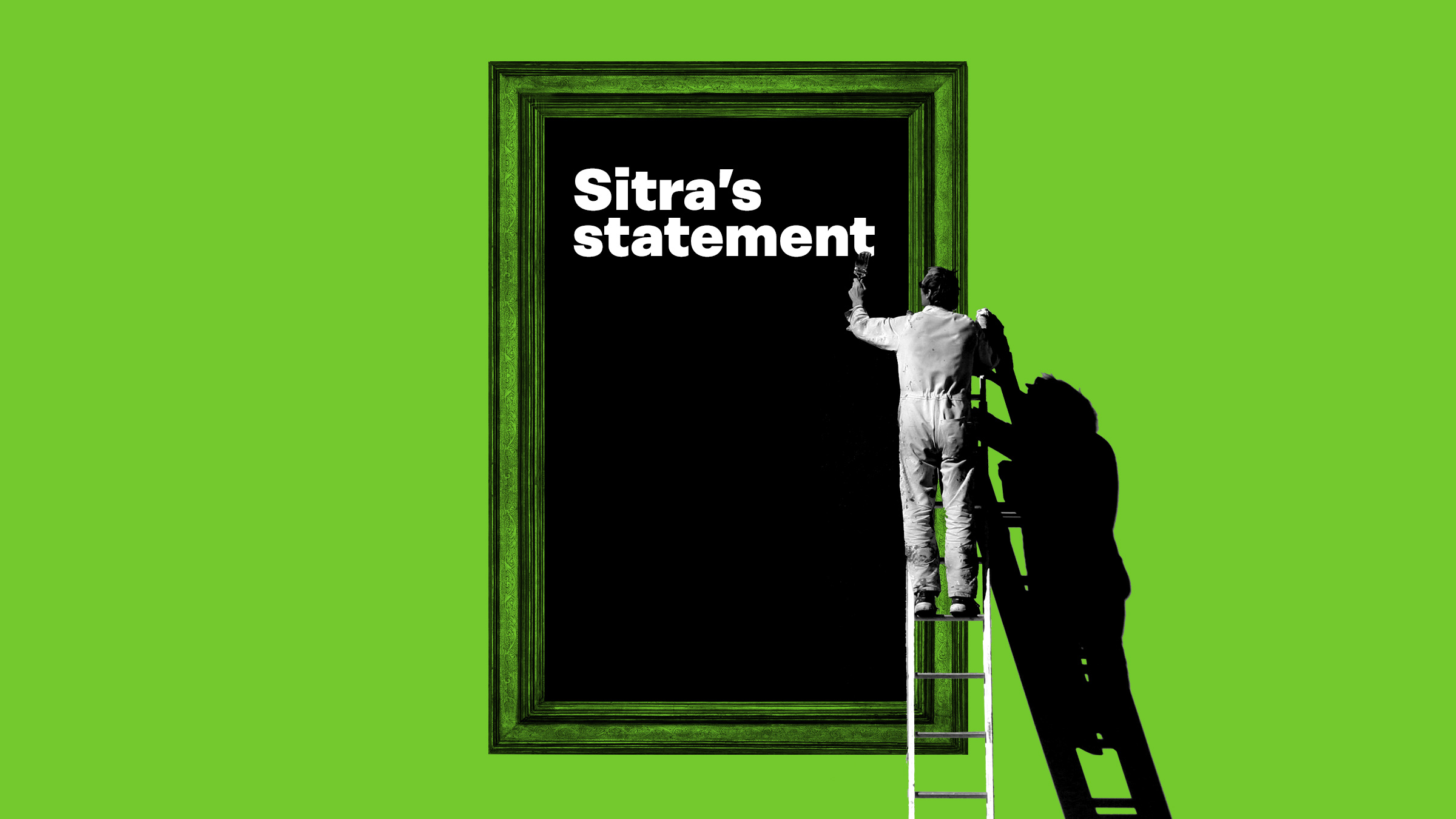


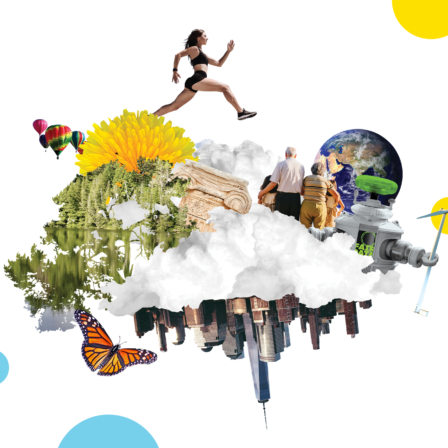
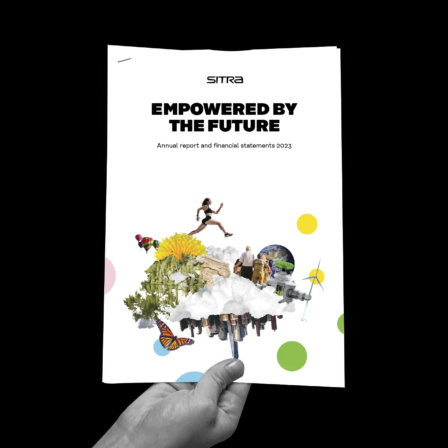






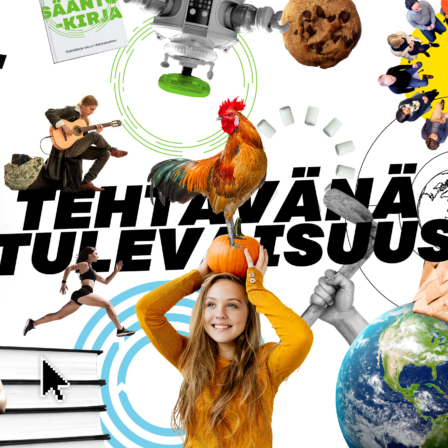



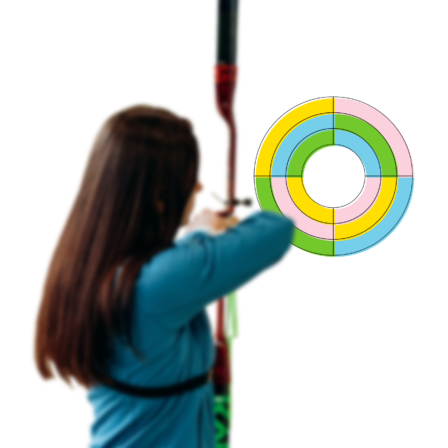


Recommended
Have some more.